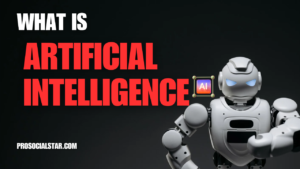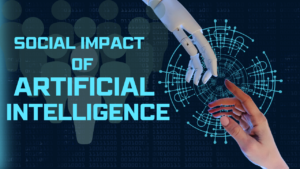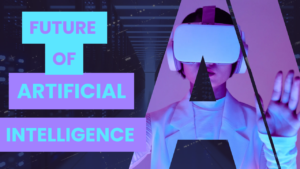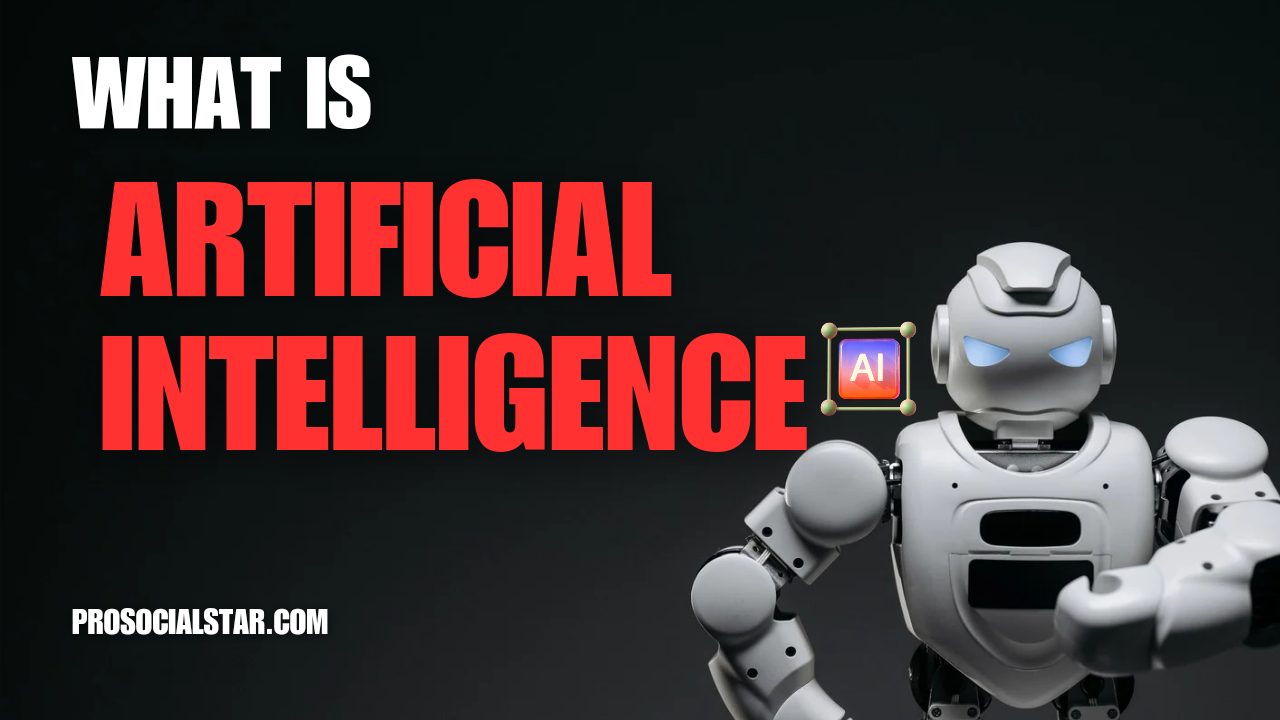
Introduction
Artificial Intelligence( AI) is no longer a figment of wisdom fabrication; it’s a palpable force reshaping our world. From virtual sidekicks to independent vehicles, AI permeates colorful aspects of our diurnal lives, promising to revise diligence and review mortal actuality. In this comprehensive companion, we claw deep into the future of AI, exploring its implicit impact on society, frugality, ethics, and beyond.
The Elaboration of Artificial Intelligence
Origins of AI Tracing back to the roots of AI, from Alan Turing’s theoretical frame to the development of neural networks.
mileposts in AI pressing crucial improvements similar to IBM’s Deep Blue defeating Garry Kasparov in chess and the arrival of natural language processing.
The Rise of Machine Learning Exploring how machine literacy algorithms have propelled AI forward, enabling systems to learn from data and ameliorate over time.
Operations of AI Across diligence
Healthcare Agitating AI’s part in medical opinion, medicine discovery, substantiated treatment plans, and remote case monitoring.
Finance Examining how AI is revolutionizing fiscal services through algorithmic trading, fraud discovery, and client service chatbots.
Transportation assays the impact of AI on independent vehicles, business operation systems, and prophetic conservation in aeronautics and shipping.
The Societal Impact of AI

Employment Landscape moots the counteraccusations of robotization on the pool, including job relegation, skill retraining, and the emergence of new job places.
Education Exploring AI’s eventuality in substantiated literacy gests, adaptive training systems, and educational content creation.
sequestration and Security Addressing enterprises girding data sequestration, algorithmic bias, and the ethical use of AI in surveillance and law enforcement.
Ethical Considerations in AI Development
Bias and Fairness Agitating the challenges of algorithmic bias and the need for fairness, responsibility, and translucency( FAT) in AI systems.
Autonomous Systems Examining ethical dilemmas in independent vehicles, healthcare robots, and military drones, including decision– timber and responsibility.
AI and Human Rights Exploring the crossroad of AI with mortal rights issues similar to surveillance, suppression, and social demarcation.
The Future of AI Openings and Challenges

Quantum Computing Assuming the eventuality of amount computing to revise AI by exponentially adding processing power and working complex problems.
AGI and Superintelligence probing into the conception of Artificial General Intelligence( AGI) and the academic script of superintelligent AI surpassing mortal intelligence.
Responsible AI Development championing ethical AI exploration and development practices, including interdisciplinary collaboration, stakeholder engagement, and nonsupervisory fabrics.
Navigating the AI Revolution Strategies for Individualities and Associations
Lifelong literacy Emphasizes the significance of nonstop education and upskilling to acclimatize to the changing demands of AI-driven frugality.
mortal– AI Collaboration Exploring how humans and AI can round each other‘s strengths in cooperative surroundings, fostering creativity and invention.
Ethical Leadership Calling for ethical leadership in AI governance, with a focus on diversity, addition, and mortal-centric design principles.
Conclusion
As we stand on the cliff of an AI-driven future, the choices we make moment will shape the world of hereafter. By employing the transformative power of AI responsibly and immorally, we can unleash its full eventuality to enhance mortal capabilities, ameliorate the quality of life, and produce a further indifferent and sustainable future for all.
With this comprehensive companion, we hope to inspire informed conversations, foster critical thinking, and empower individuals and associations to navigate the complications of the AI revolution with foresight and integrity. The future of artificial intelligence is ours to shape, and together, we can strive towards a future where AI serves as a force for good in transforming our lives and society at large.
(Frequently asked questions)FAQs
What’s Artificial Intelligence( AI) and how does it work?
Artificial Intelligence refers to the simulation of mortal intelligence in machines that are programmed to suppose and learn like humans. It encompasses colorful subfields similar to machine literacy, natural language processing, computer vision, and robotics. AI systems work by recycling vast quantities of data, relating patterns, and making opinions or prognostications grounded on algorithms and models.
What are the real-world operations of AI?
AI has a wide range of operations across diligence, including healthcare( medical opinion, medicine discovery), finance( algorithmic trading, fraud discovery), transportation( independent vehicles, business operation), education( substantiated literacy, adaptive training), and more. It’s also used in virtual sidekicks, recommendation systems, and facial recognition technology.
How will AI impact employment and the pool?
While AI robotization may lead to job relegation in certain diligence, it also creates new job openings in AI development, data analysis, and mortal– AI collaboration places. The pool will need to acclimatize by acquiring new chops, embracing lifelong literacy, and fastening on tasks that bear mortal creativity, empathy, and problem-solving capacities.
What are the ethical considerations in AI development?
Ethical considerations in AI include issues of algorithmic bias, data sequestration, translucency, responsibility, and the implicit abuse of AI in surveillance and decision– timber. Inventors and policymakers need to prioritize fairness, inclusivity, and mortal rights in AI design and deployment.
What are the pitfalls and benefits of AGI( Artificial General Intelligence) and superintelligent AI?
AGI refers to AI systems that retain mortal– suchlike intelligence across a broad range of tasks, while superintelligent AI surpasses mortal intelligence. The implicit benefits of AGI include working on complex problems and advancing scientific exploration, but there are also pitfalls similar to loss of control, unintended consequences, and empirical pitfalls to humanity.
How can individualities and associations navigate the AI revolution responsibly?
individualities can prepare for the AI-driven future by investing in education and upskilling, fostering mortal-AA collaboration, and championing ethical AI practices. Organizations should prioritize diversity, addition, and ethical leadership in AI development, and engage in interdisciplinary collaboration and stakeholder dialogue to address societal enterprises.
What part does regulation play in AI development?
Regulation plays a pivotal part in icing the responsible development and deployment of AI technologies. It can help alleviate pitfalls, cover consumer rights, and establish ethical norms and guidelines for AI exploration and deployment. still, nonsupervisory fabrics should balance invention with responsibility and not stifle technological progress.
How can AI contribute to addressing global challenges such as climate change and healthcare disparities?
AI has the potential to facilitate climate modeling, energy optimization, and environmental monitoring to mitigate the effects of climate change. In healthcare, AI can improve access to medical services, enhance diagnostic accuracy, and personalize treatment plans, thereby reducing disparities and improving health outcomes globally.
What are the current limitations and challenges facing AI development?
Despite rapid advancements, AI still faces challenges such as data bias, algorithmic transparency, interpretability, and safety concerns in autonomous systems. There’s also a need for interdisciplinary collaboration, ethical guidelines, and regulatory frameworks to address these challenges and ensure the responsible and beneficial use of AI.
What does the future hold for AI, and how can we shape it?
The future of AI holds immense potential to transform society and improve human well-being, but it also poses ethical, social, and economic challenges that must be addressed. By fostering dialogue, collaboration, and ethical leadership, we can shape a future where AI serves as a powerful tool for positive change, enhancing human capabilities and creating a more equitable and sustainable world.

1 thought on “What is AI ? The Future of Artificial Intelligence: 2.How AI Will Transform Our Lives?”